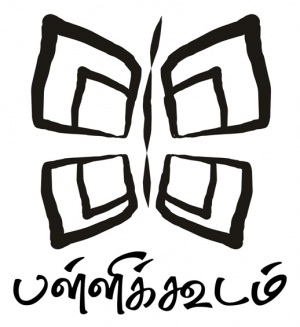Template:Virtual Learning Environments/Introduction
As the societies evolve into a knowledge society the need for higher and specialized education is increasing. The need for continuous learning, retraining and acquiring of new skills is becoming part of everyday life. Yet, the cost of education is increasing at an alarming rate, higher than food or medical costs. For a vast body of students quality education is simply unavailable and/or unaffordable. This is specially the case for many students from North and East of Sri Lanka, who have been deprived of vital educational resources due to the long civil war. There exist a significant youth population whose education was disrupted and need vocational training. Virtual Learning Environments (VLEs) made possible by emerging Internet based educational technologies provide a great cost-effective opportunity to bring quality educational resources to these students and youth.
Education plays a pivotal role in building an egalitarian social order. In order to carry forward our struggles for social justice and democracy, we should ensure that the communities that occupy the margins of our social order--the poor, the working classes, oppressed castes, women, ethnic and religious minorities, to name a few have access to free education. The attempts on the part of the state and global forces to privatize education pose a challenge to the social and economic progress of the weaker sections of our society. At this juncture, we need to think about building alternative educational systems that cater to the educational needs of the marginalized social groups. At the same time, we need to reflect on what constitutes "good education," keeping in mind the role education could play in the development and democratization of society and the state. We need to rescue education from neo-liberal forces that try to reduce it to the acquisition of certain soft skills. The alternative educational systems should empower individuals socially and economically, challenge oppressive ideologies of racism, casteism, classicism and patriarchy, highlight the importance of secularism and democracy and create awareness among the public, at the grass-roots levels, of sustainable development, environmental protection and human rights. "Pallikoodam," an educational initiative of Noolaham Foundation aims at creating an alternative, community-centered educational system among the Tamil speaking communities in Sri Lanka. Students from grades 1 to 13 in the primary and secondary educational systems will be benefited by this program. Even though it operates in parallel to the educational system centered around the schools, one of the central objectives of Pallikoodam is to combine formal education with vocational education and to promote education as a social good that has the potential to transform our lives and attitudes for the better.
With the evolution of society into a knowledge society, the need for higher and specialized education has risen. The need for continuous learning, retraining and acquisition of new skills has become a part of our everyday life. Yet, the cost of education is increasing at an alarming rate, higher than food or medical costs. For a vast body of students quality education is simply unavailable and/or unaffordable. This is specially the case for many Tamil students from the North and East and central hills of Sri Lanka, who have been deprived of vital educational resources due to the long civil war and economic exploitation. There exists a significant youth population whose education was disrupted. These youngsters are at the heart of Pallikoodam.
Pallikoodam aims at supporting the learning and teaching of different core subjects such as mother tongue, mathematics, history, science and technology. In addition, we are also interested in promoting English language and IT skills among the students. The emphasis on the acquisition of English language skills and information technology within the realms of education in the recent years has prevented us from looking at the ways in which education could be deployed to give birth to a progressive social order. On the other hand, we cannot do away with these skills, for they have the potential to bring together different communities divided along lines of language, culture and location easily and sometimes effectively. We need to identify news ways of using these skills to combat exploitative forces without succumbing to the agendas of neo-liberalism. Pallikoodam explores new avenues for teaching and learning these skills while stressing the political goals that the acquisition of these skills have to serve. Virtual Learning Environments (VLEs) made possible by emerging Internet based educational technologies provide a great cost-effective opportunity to bring quality educational resources to students and youth. Pallikoodam aims at offering quality education by creating Virtual Learning Environments for Tamil speaking students from the underprivileged regions in Sri Lanka. It helps a student have access to the Internet to proceed his/her studies anywhere and anytime. Environments such as peer-to-peer learning, social learning are included in the evolutionary part of the initiative. Virtual Learning will help those who are in need of self learning and those want to share their knowledge through the Internet.
